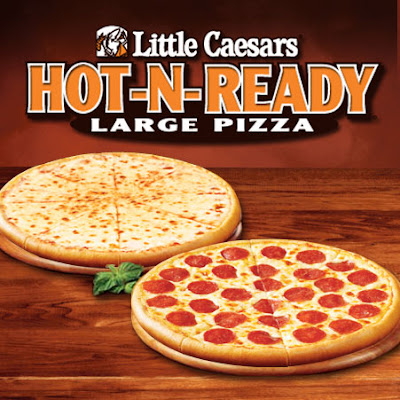 Pinnacle Pizza was a franchisee of Little Caesar Enterprises (LCE), the corporation that manages the “Little Caesars” franchises. Pinnacle Pizza created a promotional program for its stores called “Hot ‘N Ready,” which guaranteed a hot, medium pepperoni pizza for $4 within five minutes of the order every Tuesday. There was some discussion about who conceived of the terms of the promotion, but there was no dispute that Pinnacle conceived of the phrase and first use “Hot ‘N Ready” for its version of the program.
Pinnacle Pizza was a franchisee of Little Caesar Enterprises (LCE), the corporation that manages the “Little Caesars” franchises. Pinnacle Pizza created a promotional program for its stores called “Hot ‘N Ready,” which guaranteed a hot, medium pepperoni pizza for $4 within five minutes of the order every Tuesday. There was some discussion about who conceived of the terms of the promotion, but there was no dispute that Pinnacle conceived of the phrase and first use “Hot ‘N Ready” for its version of the program.
The program was very successful and Pinnacle Pizza willingly spread, and aided Little Caesar in spreading, the concept throughout the Little Caesar’s chain. Pinnacle Pizza claimed that the promotion helped to turn the company from one $200 million in debt to one with $200 million in assets. Little Caesar later successfully registered a variant of the mark, “Hot-N-Ready,” relying on Pinnacle’s first use date in the application.
Pinnacle Pizza sued Little Caesar on a variety of state law claims, including a claim that under the terms of the franchise agreement Pinnacle, not Little Caesar, owned the trademark. The trial court held in Little Caesar’s favor, as explained in more detail here. The decision was appealed to the Court of Appeals for the Eighth Circuit.
The appeals court reached the same place, albeit in a different way. The alleged breach occurred more than six years before the claim was filed, and thus the first question was whether the statute of limitations barred the claim. The trial court held that the “continuing wrong” doctrine applied so the claim was timely, but the appeals court disagreed:
| We thus conclude that if LCE breached the franchise agreement, it did so once – the first time LCE appropriated “Hot-N-Ready.” Pinnacle’s action for breach of contract, therefore, accrued when LCE allegedly materially breached the contract. This breach would have occurred before October 25, 1998. |
Therefore the contract claim and the state law franchise claim were untimely.
Pinnacle had also appealed the trial court’s decision that the registration was not invalid for fraud. This claim was not time-barred, but Pinnacle was as unsuccessful here as it had been in the trial court. But, the appeals court fell into the trap that the district court avoided. It relied on this provision in the franchise agreement:
 “Proprietary Marks” is defined thus:
“Proprietary Marks” is defined thus: These provisions says nothing about how to decide if Little Caesar has “acquired” a “Proprietary Mark,” only that once it had, a franchisee cannot claim ownership. Imagine a phrase that can only be used locally – “South Forks’ Best Pizza!” – and it’s easy to see that nothing in these paragraphs would clarify who owns it.
These provisions says nothing about how to decide if Little Caesar has “acquired” a “Proprietary Mark,” only that once it had, a franchisee cannot claim ownership. Imagine a phrase that can only be used locally – “South Forks’ Best Pizza!” – and it’s easy to see that nothing in these paragraphs would clarify who owns it.
But once the court finds that Little Caesar owns the trademark, Little Caesar’s reliance on Pinnacle’s first use date cannot be fraudulent.
And franchise owners, take heed. Little Caesar counterclaimed that Pinnacle breached the franchise agreement by challenging the validity of the HOT-N-READY trademark. Closing the circle, the appeals court agreed that since Little Caesar owned the HOT-N-READY mark, Pinnacle had indeed breached the no challenge provision in the franchise agreement; good faith was no excuse. Fortunately for Pinnacle the remedy was $1.00. But prepare for an all or nothing battle if you think the franchisor stole your mark.
Pinnacle Pizza Co. v. Little Caesar Enter., Inc., No. 08-3999 (8th Cir. Mar. 22, 2010). Link to opinion on 8th Circuit website here.

This work is licensed under a Creative Commons Attribution-No Derivative Works 3.0 United States License.
